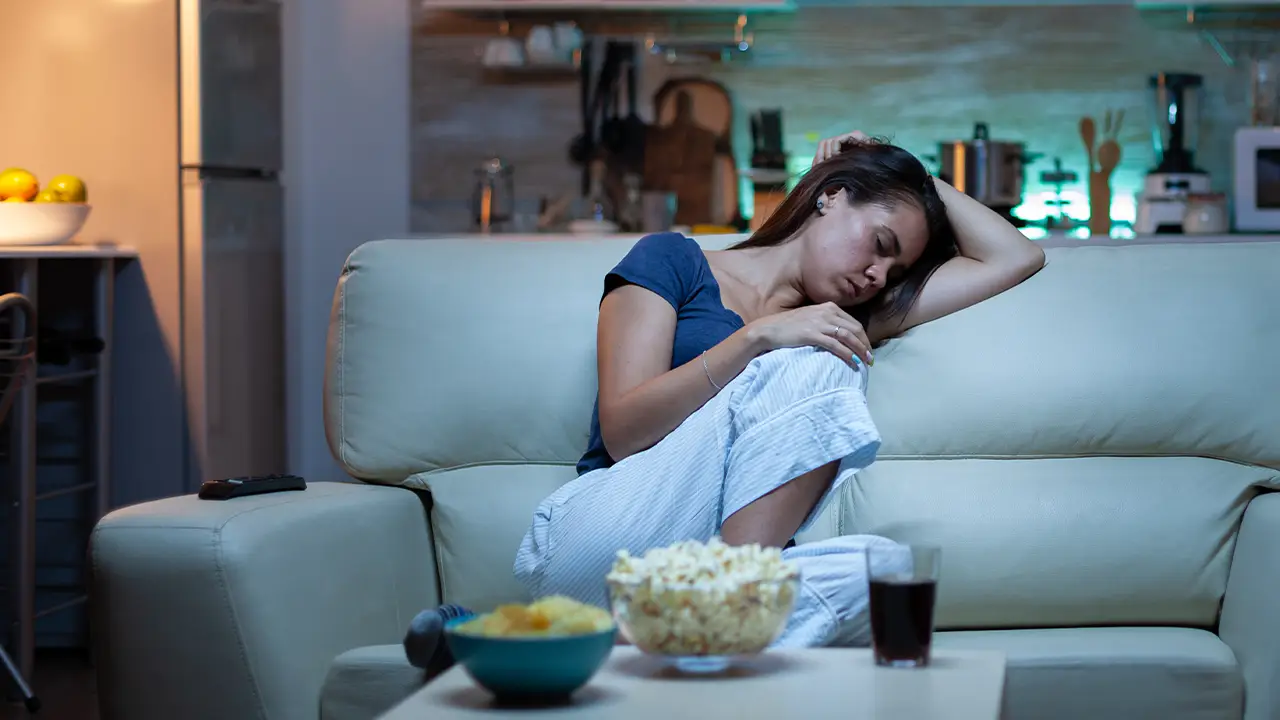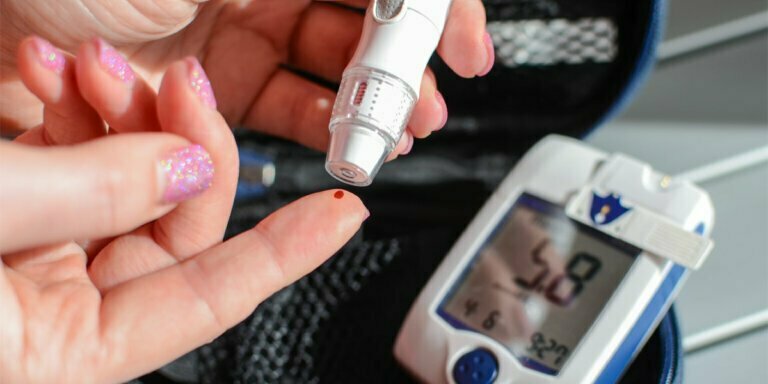Experiencing the urge to take a nap after eating a large meal is a frequent occurrence. However, is falling asleep right after eating a sign of diabetes? There are approximately 34.2 million people with diabetes in the Unites States. Due to the seriousness of this health condition, this article aims to explore the correlation between post-meal drowsiness and diabetes, given the seriousness of this health condition. Additionally, we will discuss how remote patient monitoring (RPM) technology can enhance diabetes care for patients who experience post-meal drowsiness.
Understanding Post-Meal Drowsiness
Post-meal drowsiness, also known as food coma or postprandial somnolence, is characterized by feeling tired or fatigued after eating. This situation typically occurs more noticeably after consuming a meal that is high in carbohydrates or sugar. For those who are diabetic, post-meal drowsiness can be a cause for concern, as it may indicate poor blood glucose control.
Is Falling Asleep After Eating a Sign of Diabetes?
Feeling sleepy after eating is a common experience for many individuals. However, it could be an indication of an underlying health condition, such as type 2 diabetes. While falling asleep after eating doesn’t necessarily mean one has diabetes, it can be a symptom worth exploring if concerned about health.
Factors Contributing to Post-Meal Drowsiness
Food coma may be a symptom of hypoglycemia, a condition where blood sugar levels drop too low, as well as a sign of high blood sugar levels in people with diabetes. However, other factors can also contribute to feeling sleepy after eating, including:
- Eating too much food: Consuming large portions of food can cause drowsiness due to the body’s increased workload in digesting the food.
- Food choices: Meals that are high in carbohydrates or sugar can cause a rapid rise in blood sugar levels, followed by a drop, which can lead to fatigue.
- Dehydration: Not drinking enough water can cause fatigue and drowsiness.
- Insulin sensitivity: Insulin is a hormone that helps the body convert sugar into energy. In people with diabetes, their body may not produce enough insulin or may not use it efficiently, leading to a lack of energy.
When to See a Doctor
Post-meal drowsiness is not unique to individuals with diabetes and does not necessarily indicate poor blood sugar control. People who experience continuous symptoms of fatigue, lack of energy, and feeling sleepy after eating should consider seeing a doctor to determine the cause. Monitoring carbohydrate intake and eating easily digestible meals can also help maintain energy levels throughout the day.
The Importance of Diabetes Care for Post-Meal Drowsiness
Experiencing post-meal drowsiness can be an indication to consider getting tested for diabetes, a chronic medical condition that can lead to severe damage to several parts of the body, such as the heart, eyes, nerves, and kidneys. Early detection and proper management of diabetes can prevent or delay the onset of these complications, resulting in a better quality of life. Making healthy lifestyle choices can help control blood sugar levels and decrease the risk of food coma and other diabetes-related symptoms. Therefore, taking diabetes care seriously is essential to maintain good health and overall well-being.
Experiencing tiredness after meals can be due to blood sugar spikes, but making some lifestyle changes can help prevent it. Here are some nutrition tips that can reduce drowsiness after eating:
- Eat Smaller, Frequent Meals: Instead of eating large meals, try eating smaller, more frequent ones. This can reduce the strain on your digestive system and minimize the likelihood of a postprandial dip.
- Avoid Sugary Drinks and Foods: Foods with a lot of sugar can cause blood sugar spikes, followed by a rapid drop, leading to drowsiness. Opt for complex carbohydrates, such as whole grains, fruits, and vegetables, instead.
- Stay Hydrated: Dehydration can cause tiredness and fatigue. Drinking plenty of water and other hydrating beverages can help maintain energy levels.
- Incorporate Physical Activity: Going for a walk after a meal can stimulate the digestive system and regulate blood sugar levels, preventing drowsiness.
By following these simple nutrition tips, people can reduce the likelihood of experiencing drowsiness after meals and maintain consistent energy levels throughout the day.
DrKumo Remote Patient Monitoring and Diabetes Care
DrKumo state-of-the-art RPM is an innovative solution that provides patients with the opportunity to manage their health conditions from the comfort of their homes. RPM helps patients with chronic diseases, such as diabetes, by continuously tracking blood sugar levels and providing alerts when they exceed or fall below a certain range. This technology also enables healthcare providers to monitor their patients’ nutritional intake and physical activity levels, providing feedback on food choices and encouraging exercise to prevent blood sugar spikes. By tracking vital signs and monitoring symptoms of diabetes, healthcare professionals can make timely adjustments to treatment plans, ensuring that patients avoid complications. Additionally, RPM technology can be useful in tracking sleep patterns and provide feedback on improving sleep quality, reducing the likelihood of daytime sleepiness.
Furthermore, DrKumo RPM technology could play a significant role in managing post-meal drowsiness due to poor blood sugar management in patients with diabetes. This technology provides healthcare professionals with the ability to remotely monitor vital signs and intervene promptly to prevent this and other symptoms of diabetes. DrKumo RPM solutions also provides patients with the opportunity to take control of their health conditions and improve their quality of life, all from the comfort of their homes.
Conclusion
While feeling sleepy after a meal may not always be a clear indication of diabetes, excessive drowsiness can potentially be an indication of high blood sugar levels in some individuals. To prevent post-meal fatigue, it is recommended to consume smaller, balanced meals, steer clear of sugary foods, keep hydrated, and engage in light physical activity after eating. It is advisable to consult a healthcare provider if you experience persistent post-meal drowsiness. DrKumo advanced RPM technology can help manage blood sugar levels and minimize complications, particularly for individuals with diabetes.
Discover the benefits of RPM for Diabetes Care and take control of your health today. Contact DrKumo now to learn more.








